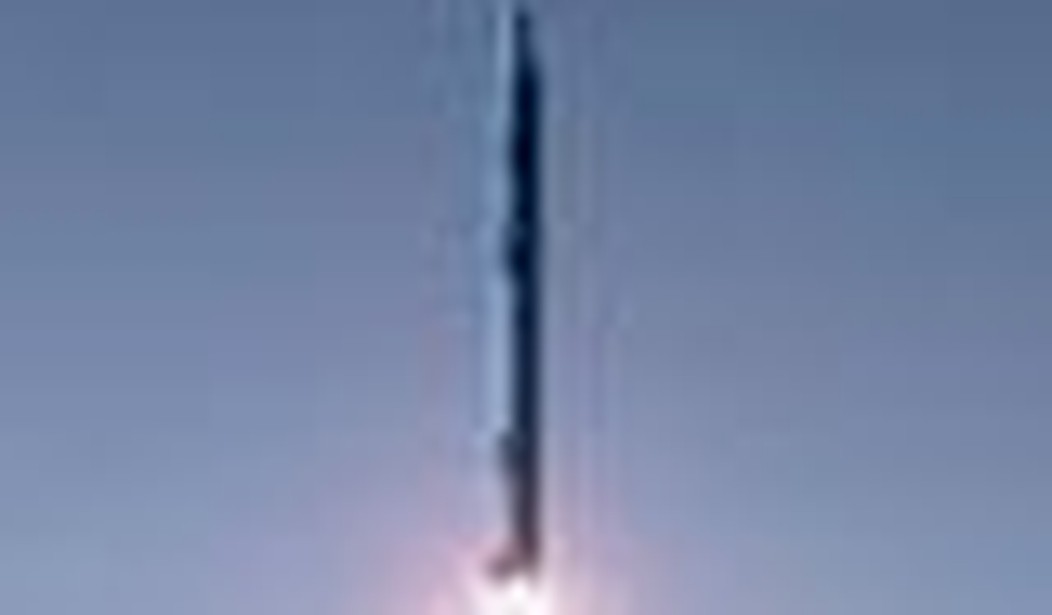Few in the know doubt the fact that Iran has acquired the knowledge to produce an atomic bomb. Israeli intelligence is far more concerned with Iran’s pace of advancement towards making the bomb than American or European intelligence sources are. The question in Israel is no longer if Israel should eliminate the Iranian threat, but rather when.
The Netanyahu government is skeptical about the Obama administration’s ability to reverse Iran’s quest for a nuclear weapon. And Hillary Clinton’s statement about offering the Arab Gulf states a protective umbrella against an Iranian nuclear threat only intensified the Sunni Arab states’ skepticism over America’s capacity to stop the Iranians. In fact, in the Middle East, the Obama administration appears weak and indecisive and resigned to the reality of a nuclear Iran.
For several years now, a game of mutual intimidation has gone on between Israel and Iran. The Islamic Republic of Iran and its theocratic leadership advertised its successful testing of long-range missiles, while Israel responded with public shows of the long-range refueling capabilities of its aircraft. Iran acquired sophisticated anti-aircraft missiles to defend against aerial attacks and, in 2007, Israel responded with the destruction of the Syrian nuclear facility.
This back and forth “game” is serious. Both sides understand the consequences of a nuclear attack. Former Iranian President Rafsanjani has boasted that an Iranian attack would destroy Israel, and that an Israeli counterattack would create acceptable damage.
Rafsanjani’s point was obvious: Israel’s smallness makes it vulnerable to total destruction, whereas Iran’s huge size could easily overcome an Israeli attack.
The real issue, however, is not rooted solely in the impact of bombing by one side or the other. While an Iranian bombing of Israel might indeed devastate the Jewish state, it would not destroy it. And an Israeli counterpunch could do much greater damage to Iran than anticipated by Rafsanjani.
Let us assume that the Israeli Air Force attacked the nuclear facilities spread throughout Iran and damaged or destroyed its capacity to produce a bomb for at least three to five years. It would certainly give Israel a respite and partial relief to its existential anxieties. What Israel cannot eliminate by attacking the Iranian nuclear facilities, however, is the know-how acquired by Iranian scientists. It would therefore become just a matter of time before the Iranians restore their nuclear capacity.
The consequences of an Israeli attack would doubtless be wide condemnation of the Jewish state in international forums, the UN in particular. More importantly, however, such a strike would solidify the mullahs’ control of Iran by appealing to the patriotism of all Iranians. It would force reformers and democrats who seek change to close ranks with the despised authoritarian regime.
As long as the regime of Ayatollah Khamenei and Ahmadinejad remains intact, bombing and destroying most of Iran’s nuclear facilities would at best only provide temporary relief. The cost of such bombing missions might be too prohibitive. Iran would unleash its dependencies — Syria, Hezbollah, and Hamas — against Israel’s population centers, with much greater damage to Israel’s civilian population than was caused by the Second Lebanon War of 2006.
Israel and the U.S. must focus on eliminating the current Iranian regime. The regime change should be undertaken by the oppressed minority groups within Iran who are currently combating the regime and its Revolutionary Guards. The persecuted and disaffected Iranian minorities (approximately 55 percent of Iran’s population), including many like the Ahwazi Arabs in the oil-rich Khuzestan region of southwestern Iran who are being forced off their lands by an ongoing campaign of ethnic cleansing, are ready to fight and die for their cause.
Military and financial support to the Ahwazi Arab rebels would increase the chances for the disablement of Iran’s oil producing capacity. As oil is the primary source of revenue for Iran, such action would create tremendous hardship for all Iranians, causing further domestic discontent and expediting regime change from within.
The largely Sunni Kurdish population has been fighting the oppressive regime of the ayatollahs for nearly thirty years and has made significant sacrifices of life and property in their attempt to attain, at the very least, their cultural and religious rights. The Kurds, who number around seven million strong out of Iran’s 70 million people, have inflicted significant damage on the Tehran regime. Moreover, the Kurdish area is also oil-rich. Providing the Kurdish rebels with weapons, training, and funds would result in a serious challenge to the Revolutionary Guards and to the regime’s survivability.
Last July, the Iranian theocracy hung 13 Baluchi students. The Sunni Baluch minority in Iran (four to five million strong), much like the Kurds, seeks self-determination for their people. The Kurds and Baluch are the only large nations in the Middle East without a sovereign national homeland. Like the Kurds (spread through Iraq, Iran, Syria, and Turkey) the Baluch people demand an independent Baluchistan as the homeland for their people in Afghanistan, Pakistan, and Iran.
The Baluchis, Kurds, and Ahwazis are determined to bring change to Iran, and their passion for a rebellion will not subside anytime soon.
Azeris, the largest minority group, number over 20 million — approximately one-third of Iran’s population. Their mother tongue is Turkish, and they aspire to unite with their much better-off brethren in Azerbaijan. The Azeris have also been fighting the Tehran regime and demanding, at a minimum, their cultural autonomy. The recently held fraudulent elections in Iran and the huge anti-regime demonstrations that followed have further convinced these minority groups that the time is right for them to press on and continue their fight.
Once the fire is lit by coordinated attacks coming from all corners of Iran — in the north and northwest by Kurds and Azeris, in the south and the southeast by Baluchis and Ahwazi Arabs — and support from America and Israel, it would provide a backwind for the Persian reformers and democrats seeking a democratic, free, and fair Iran. Only in coordination with such a collective uprising against the mullah regime would the bombing of Iran’s nuclear facilities be effective and complete.









Join the conversation as a VIP Member